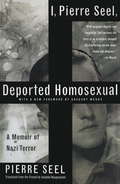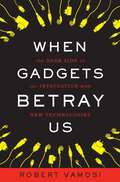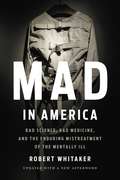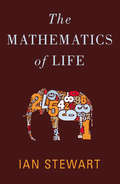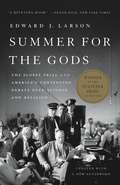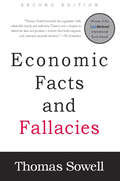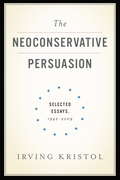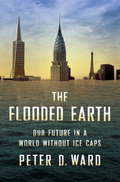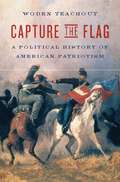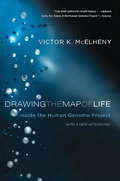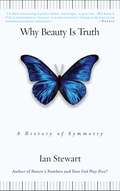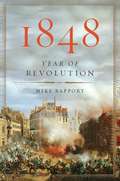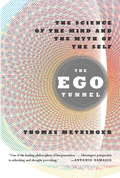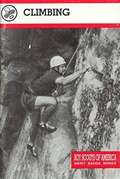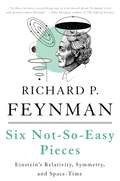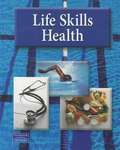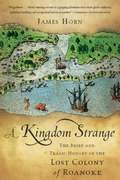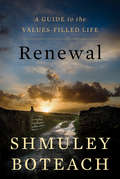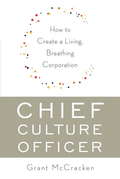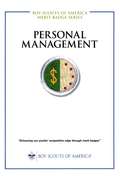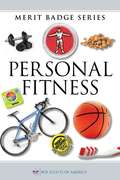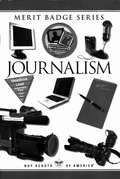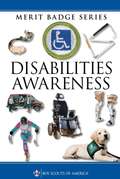- Table View
- List View
I, Pierre Seel, Deported Homosexual: A Memoir of Nazi Terror
by Joachim Neugroschel Pierre SeelOn a fateful day in May 1941, in Nazi-occupied Strasbourg, seventeen-year- old Pierre Seel was summoned by the Gestapo. This was the beginning of his journey through the horrors of a concentration camp.<P> For nearly forty years, Seel kept this secret in order to hide his homosexuality. Eventually he decided to speak out, bearing witness to an aspect of the Holocaust rarely seen. This edition, with a new foreword from gay-literature historian Gregory Woods, is an extraordinary firsthand account of the Nazi roundup and the deportation of homosexuals.
When Gadgets Betray Us: The Dark Side of Our Infatuation With New Technologies
by Robert VamosiWriting in plain language for general readers, Vamosi, a computer security analyst and a contributing editor at PCWorld, explains what we're really signing up for when we log in and reveals the secret lives of our electronic devices, offering a commonsense approach for protecting ourselves. The book is about hardware hacking and new kinds of identity fraud: how our mobile phone conversations can be intercepted, how our credit cards and driver's licenses can be copied at a distance. The author travels from the streets of New York and LA to Johannesburg and Berlin, to talk to people who have experienced firsthand how gadgets can betray us and to examine the effects of technology in the Third World. He recommends the addition of basic authentication and strong encryption to most hardware to reduce the vulnerabilities described in the book, but notes that hardware manufacturers have so far shown little interest in securing their gadgets. Annotation ©2011 Book News, Inc. , Portland, OR (booknews. com)
Mad in America: Bad Science, Bad Medicine, and the Enduring Mistreatment of the Mentally Ill
by Robert WhitakerAn updated edition of the classic history of schizophrenia in America, which gives voice to generations of patients who suffered through "cures" that only deepened their suffering and impaired their hope of recoverySchizophrenics in the United States currently fare worse than patients in the world's poorest countries. In Mad in America, medical journalist Robert Whitaker argues that modern treatments for the severely mentally ill are just old medicine in new bottles, and that we as a society are deeply deluded about their efficacy. The widespread use of lobotomies in the 1920s and 1930s gave way in the 1950s to electroshock and a wave of new drugs. In what is perhaps Whitaker's most damning revelation, Mad in America examines how drug companies in the 1980s and 1990s skewed their studies to prove that new antipsychotic drugs were more effective than the old, while keeping patients in the dark about dangerous side effects. A haunting, deeply compassionate book-updated with a new introduction and prologue bringing in the latest medical treatments and trends-Mad in America raises important questions about our obligations to the mad, the meaning of "insanity," and what we value most about the human mind.
The Mathematics of Life: The New Mathematics Of The Living World
by Ian StewartBiologists have long dismissed mathematics as being unable to meaningfully contribute to our understanding of living beings. Within the past ten years, however, mathematicians have proven that they hold the key to unlocking the mysteries of our world--and ourselves. In The Mathematics of Life, Ian Stewart provides a fascinating overview of the vital but little-recognized role mathematics has played in pulling back the curtain on the hidden complexities of the natural world--and how its contribution will be even more vital in the years ahead. In his characteristically clear and entertaining fashion, Stewart explains how mathematicians and biologists have come to work together on some of the most difficult scientific problems that the human race has ever tackled, including the nature and origin of life itself.
Summer for the Gods: The Scopes Trial and America's Continuing Debate Over Science and Religion
by Edward J. LarsonThe Pulitzer Prize-winning history of the Scopes Trial and the battle over evolution and creation in America's schools.In the summer of 1925, the sleepy hamlet of Dayton, Tennessee, became the setting for one of the twentieth century's most contentious courtroom dramas, pitting William Jennings Bryan and the anti-Darwinists against a teacher named John Scopes, represented by Clarence Darrow and the ACLU, in a famous debate over science, religion, and their place in public education. That trial marked the start of a battle that continues to this day in cities and states throughout the country. Edward Larson's classic Summer for the Gods -- winner of the Pulitzer Prize in History -- is the single most authoritative account of this pivotal event. An afterword assesses the state of the battle between creationism and evolution, and points the way to how it might potentially be resolved.
Economic Facts and Fallacies: Second Edition
by Thomas SowellEconomic Facts and Fallaciesexposes some of the most popular fallacies about economic issues-and does so in a lively manner and without requiring any prior knowledge of economics by the reader. These include many beliefs widely disseminated in the media and by politicians, such as mistaken ideas about urban problems, income differences, male-female economic differences, as well as economics fallacies about academia, about race, and about Third World countries. One of the themes ofEconomic Facts and Fallaciesis that fallacies are not simply crazy ideas but in fact have a certain plausibility that gives them their staying power-and makes careful examination of their flaws both necessary and important, as well as sometimes humorous. Written in the easy-to-follow style of the author’sBasic Economics, this latest book is able to go into greater depth, with real world examples, on specific issues.
The Neoconservative Persuasion: Selected Essays, 1942-2009
by Irving KristolFrom the late founder of neoconservatism, a wide-ranging collection of his best writings
Flooded Earth: Our Future In a World Without Ice Caps
by Peter D. WardSea level rise will happen no matter what we do. Even if we stopped all carbon dioxide emissions today, the seas would rise one meter by 2050 and three meters by 2100. This--not drought, species extinction, or excessive heat waves--will be the most catastrophic effect of global warming. And it won’t simply redraw our coastlines--agriculture, electrical and fiber optic systems, and shipping will be changed forever. As icebound regions melt, new sources of oil, gas, minerals, and arable land will be revealed, as will fierce geopolitical battles over who owns the rights to them. In The Flooded Earth, species extinction expert Peter Ward describes in intricate detail what our world will look like in 2050, 2100, 2300, and beyond--a blueprint for a foreseeable future. Ward also explains what politicians and policymakers around the world should be doing now to head off the worst consequences of an inevitable transformation.
Capture the Flag: A Political History of American Patriotism
by Woden TeachoutAmericans honor the flag with a fervor seen in few other countries: The Stars and Stripes decorate American homes and businesses; wave over sports events and funerals; and embellish everything from politicians' lapels to the surface of the moon.But what does the flag mean? In Capture the Flag, historian Woden Teachout reveals that it has held vastly different meanings over time. It has been claimed by both the right and left; by racists and revolutionaries; by immigrants and nativists. In tracing the political history of the flag from its origins in the American Revolution through the present day, Teachout demonstrates that the shifting symbolism of the flag reveals a broader shift in the definition of American patriotism.A story of a nation in search of itself, Capture the Flag offers a probing account of the flag that has become America's icon.
Drawing the Map of Life: Inside the Human Genome Project (A Merloyd Lawrence Book)
by Victor K. McelhenyDrawing the Map of Life is the dramatic story of the Human Genome Project from its origins, through the race to order the 3 billion subunits of DNA, to the surprises emerging as scientists seek to exploit the molecule of heredity. It's the first account to deal in depth with the intellectual roots of the project, the motivations that drove it, and the hype that often masked genuine triumphs.Distinguished science journalist Victor McElheny offers vivid, insightful profiles of key people, such as David Botstein, Eric Lander, Francis Collins, James Watson, Michael Hunkapiller, and Craig Venter. McElheny also shows that the Human Genome Project is a striking example of how new techniques (such as restriction enzymes and sequencing methods) often arrive first, shaping the questions scientists then ask.Drawing on years of original interviews and reporting in the inner circles of biological science, Drawing the Map of Life is the definitive, up-to-date story of today's greatest scientific quest. No one who wishes to understand genome mapping and how it is transforming our lives can afford to miss this book.
Why Beauty is Truth: The History of Symmetry
by Ian StewartAt the heart of relativity theory, quantum mechanics, string theory, and much of modern cosmology lies one concept: symmetry. <P><P> In Why Beauty Is Truth, world-famous mathematician Ian Stewart narrates the history of the emergence of this remarkable area of study. Stewart introduces us to such characters as the Renaissance Italian genius, rogue, scholar, and gambler Girolamo Cardano, who stole the modern method of solving cubic equations and published it in the first important book on algebra, and the young revolutionary Evariste Galois, who refashioned the whole of mathematics and founded the field of group theory only to die in a pointless duel over a woman before his work was published. Stewart also explores the strange numerology of real mathematics, in which particular numbers have unique and unpredictable properties related to symmetry. He shows how Wilhelm Killing discovered "Lie groups" with 14, 52, 78, 133, and 248 dimensions-groups whose very existence is a profound puzzle. Finally, Stewart describes the world beyond superstrings: the "octonionic" symmetries that may explain the very existence of the universe.
1848: Year of Revolution
by Mike RapportIn 1848, a violent storm of revolutions ripped through Europe. The torrent all but swept away the conservative order that had kept peace on the continent since Napoleon's defeat at Waterloo in 1815--but which in many countries had also suppressed dreams of national freedom. Political events so dramatic had not been seen in Europe since the French Revolution, and they would not be witnessed again until 1989, with the revolutions in Eastern and Central Europe. In1848, historian Mike Rapport examines the roots of the ferment and then, with breathtaking pace, chronicles the explosive spread of violence across Europe. A vivid narrative of a complex chain of interconnected revolutions,1848tells the exhilarating story of Europe's violent "Spring of Nations" and traces its reverberations to the present day.
The Ego Tunnel: The Science of the Mind and the Myth of the Self
by Thomas MetzingerWe’re used to thinking about the self as an independent entity, something that we either have or are. InThe Ego Tunnel, philosopher Thomas Metzinger claims otherwise: No such thing as aselfexists. The conscious self is the content of a model created by our brain-an internal image, but one we cannot experienceasan image. Everything we experience is "a virtual self in a virtual reality. ” But if the self is not "real,” why and how did it evolve? How does the brain construct it? Do we still have souls, free will, personal autonomy, or moral accountability? In a time when the science of cognition is becoming as controversial as evolution,The Ego Tunnelprovides a stunningly original take on the mystery of the mind.
Astronomy (Merit Badge Ser.)
by Boy Scouts of America StaffFundamentals of the requirements for pursuing a merit badge in astronomy.
Climbing (Merit Badge)
by Boy Scouts of America StaffA handbook for earning the Boy Scout merit badge in climbing that covers risk management, first aid, clothing, equipment, rappelling, ethics, and more; and includes a list of resources.
Six Not-So-Easy Pieces: Einstein's Relativity, Symmetry, and Space-Time
by Matthew Sands Robert B. Leighton Richard P. FeynmanSix lectures, all regarding the most revolutionary discovery in twentieth-century physics: Einstein's Theory of Relativity. No one--not even Einstein himself--explained these difficult, anti-intuitive concepts more clearly, or with more verve and gusto, than Feynman.
Life Skills Health
by American Guide A. G. S. SecondaryA skill-based, wellness approach to health - Life Skills Health-a textbook for striving high school students--discusses critical health concepts. Students learn how to maintain positive mental health, deal with emotions, prevent sexually transmitted diseases and common diseases, implement good nutrition and exercise plans, and more. The text sharpens students' abilities to set goals and make decisions. In addition, Life Skills Health explains how to sustain healthy relationships, communicate effectively, and access health resources. Throughout Life Skills Health, simple sentence structure and assistance with difficult vocabulary work together to enhance comprehension. This exciting, full-color textbook provides student-friendly text and real-world examples to show students the importance of sound health strategies in their daily lives. The text also invites students to view health issues from a global perspective with Health in the World features.
A Kingdom Strange: The Brief and Tragic History of the Lost Colony of Roanoke
by James HornIn 1587, John White and 117 men, women, and children landed off the coast of North Carolina on Roanoke Island, hoping to carve a colony from fearsome wilderness. A mere month later, facing quickly diminishing supplies and a fierce native population, White sailed back to England in desperation. He persuaded the wealthy Sir Walter Raleigh, the expedition's sponsor, to rescue the imperiled colonists, but by the time White returned with aid the colonists of Roanoke were nowhere to be found. He never saw his friends or family again.In this gripping account based on new archival material, colonial historian James Horn tells for the first time the complete story of what happened to the Roanoke colonists and their descendants. A compellingly original examination of one of the great unsolved mysteries of American history, A Kingdom Strange will be essential reading for anyone interested in our national origins.
Renewal: A Guide to the Values-Filled Life
by Rabbi Shmuley BoteachOur culture is showing the cracks of a growing fracture. Soaring divorce rates; a crippled economy that rewards the few and punishes the many; religious-fueled hatred; record rates of depression--the headlines paint a grim picture. We inhabit a society that desperately needs fixing. But as Rabbi Shmuley Boteach reveals in his new book, Renewal, our society can made whole again when we as individuals make the choice to live a life based on values. For too long, conversations about values have been derailed by political movements trying to score points over hot-button issues like gay marriage or abortion. Boteach, one of our wisest and most respected counselors and spiritual experts, reaches deep into our history and into our shared religious legacy to revive the key universal values of Judaism for our struggling world. He presents these age-old ideas as guideposts for the challenges of modern times. These values, whose roots are in the Bible and thousands of years of Jewish spiritual living, can be applied to anyone in the modern world--from Christians and Muslims to atheists and agnostics--who want to renew their existence and recommit themselves to the most precious things in life. Renewal shows everyone how to use the timeless values of the Hebrew Bible and Judaism to live a more fulfilling, modern life. Destiny Unlike the Greeks, who believed that life was scripted from birth, the Jews believe in destiny. In short, they reject the idea of tragic fates and instead champion the individuals' capacity to create their own destiny through individual choice. Redemption Christians and Muslims emphasize salvation, or the need for man to become spiritual--to refine his character and earn a place in heaven. But Jews believe in world redemption, the capacity for the individuals to make heaven here on earth for,the betterment of the community. Action What you do is more important than what you believe. Good deeds always supersede good dogma. Enlightenment Jews are an infinitely curious people and believe that the great bane of existence--boredom--can only be cured by knowledge. Marriage Marriage refers not just to the institution, but rather the softening of the masculine by exposure to the feminine. A culture that does not know how to respect women is bound to collapse. Struggle It is wrestling with our nature, rather than attaining perfection, that constitutes true righteousness. Everyone is somehow flawed, but righteousness is found in the struggle to do right amid a predilection to act selfishly. Sacred Time Whereas other religions sanctify space, Jewish values privilege special moments. The Sabbath day, the holiest day of the week, provides a time for connecting with family and friends.
Chief Culture Officer: How to Create a Living, Breathing Corporation
by Grant MccrackenLevi-Strauss, the jeans and apparel maker, missed out on the hip-hop trend. They didn't realize that those kids in baggy jeans represented a whole new--and lucrative--market opportunity, one they could have seen coming if they had but been paying attention to the shape of American culture. Levi Strauss isn't alone. Too many corporations outsource their understanding of culture to trend hunters, cool watchers, marketing experts, consulting firms, and, sometimes, teenage interns. The cost to Levi-Strauss was a billion dollars. The cost to the rest of corporate America is immeasurable. The lesson? The American corporation needs a new professional. It needs a Chief Culture Officer. Grant McCracken, an anthropologist who now trains some of the world's biggest companies and consulting firms, argues that the CCO would keep a finger on the pulse of contemporary cultural trends--from sneakers to slow food to preppies--while developing a systematic understanding of the deep waves of culture in America and the world. The CCO's professionalism would allow the corporation to see coming changes, even when they only exist as the weakest of signals. Delightfully authoritative, trenchantly on point, bursting with insight and character, Chief Culture Officer is sure to expand your horizons--and your business.
Personal Management (Merit Badge Series)
by Boy Scouts of America Staff"Enhancing our youths' competitive edge through merit badges"
Personal Fitness (Merit Badge Series)
by Boy Scouts of America Staff"Enhancing our youths' competitive edge through merit badges
Medicine (Merit Badge Series)
by Boy Scouts of America Staff"Enhancing our youths' competitive edge through merit badges'
Journalism (Merit Badge Series)
by Boy Scouts of America StaffEnhancing our youths' competitive edge through merit badges
Disabilities Awareness (Merit Badge Series)
by Boy Scouts of America StaffBoy Scouts of America Merit Badge Series: Disabilities Awareness.
